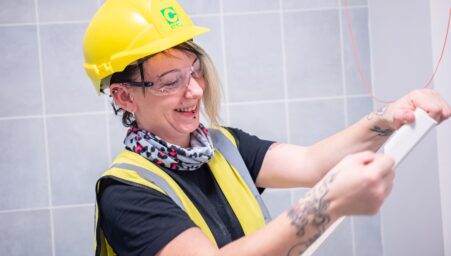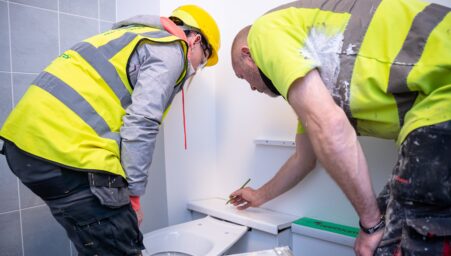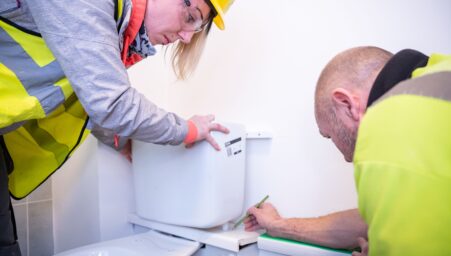Plumbing
Overview
Plumbing is an essential trade focused on installing, repairing and maintaining water systems in both residential and commercial properties. Whether you’re fixing leaks, installing heating systems, or troubleshooting issues, plumbers keep everything running smoothly. With growing demand in the UK, plumbing offers a stable and rewarding career accessible to everyone, regardless of age or background.
More about Plumbing
What Do Plumbers Do?
As a plumber, you’ll work with water, heating, and drainage systems in homes and businesses. Your daily tasks will vary, but some key duties include:
- Installing hot and cold water systems, sanitation, and drainage
- Setting up rainwater harvesters and lead soakers
- Installing central heating systems and fuel-burning appliances (gas, oil, solid fuel)
- Designing water and heating systems
- Cutting and joining pipes and fittings
- Measuring or assessing sites to provide clients with accurate estimates
- Servicing systems and repairing faults
- Responding to emergency callouts, such as floods or boiler breakdowns
What Skills Will You Use?
To be successful as a plumber, you’ll need a mix of practical and personal skills. Attention to detail is essential for ensuring systems are installed and repaired correctly, while physical stamina is necessary as much of the job requires working in tight spaces or at heights. Strong communication skills are important for working with clients, and problem-solving abilities will help you adapt to challenges on the job. If you choose to run your own business, time management and organisational skills will be vital to managing projects effectively.
Where Can This Job Take You?
A career in plumbing offers plenty of room for growth and specialisation. As you gain experience, you could move into supervisory or managerial roles, specialise in areas such as gas engineering, heating systems, eco-friendly plumbing solutions, or even start your own business. With further qualifications and experience, you might explore roles in related fields like building services, heating, or ventilation engineering.
How to Become a Plumber?
Whether you’re just finishing school or are considering a career change, there are several routes to get started:
- College Courses: A Level 2 or Level 3 Diploma in Plumbing and Domestic Heating will equip you with the skills you need to land a trainee position.
- Apprenticeships: Apprenticeships are a great way to learn while you work. You’ll gain hands-on experience, earn a wage, and receive training from a college or provider.
- Entry-Level Roles: Starting as a plumber’s assistant will give you practical experience and the opportunity to pursue further training.
What Qualifications Do You Need?
While many employers value enthusiasm and a willingness to learn, the typical qualifications you may need include:

College Courses:
For a Level 2 course, you will generally need 4-5 GCSEs at grades 9-4 (A*-C), or equivalent, including English and maths.

Apprenticeships:
You will usually need 5 GCSEs at grades 9-4 (A*-C), including English and maths, for an advanced apprenticeship.

Construction Skills Certification Scheme
You’ll also need a CSCS (Construction Skills Certification Scheme) card to work on a construction site.
Professional and Industry Bodies
Joining professional organisations can help you with ongoing development, access to training resources, and industry news. Consider joining:
Professional and Industry Bodies
Joining professional organisations can help you with ongoing development, access to training resources, and industry news. Consider joining Chartered Institute of Plumbing & Heating Engineering | CIPHE.
WaMT are dedicated to supporting women who are interested in pursuing a trade. Please contact us at support@procure-plus.com if you have any questions.
Joinery
Roofing
Electrical
Painting and Decorating
Bricklaying
Want to meet other Tradeswomen?
Whether you’re considering a career change, just getting started, or already working in the trade, our dedicated Facebook groups are a place to share advice, ask questions, and chat with other women who get it.